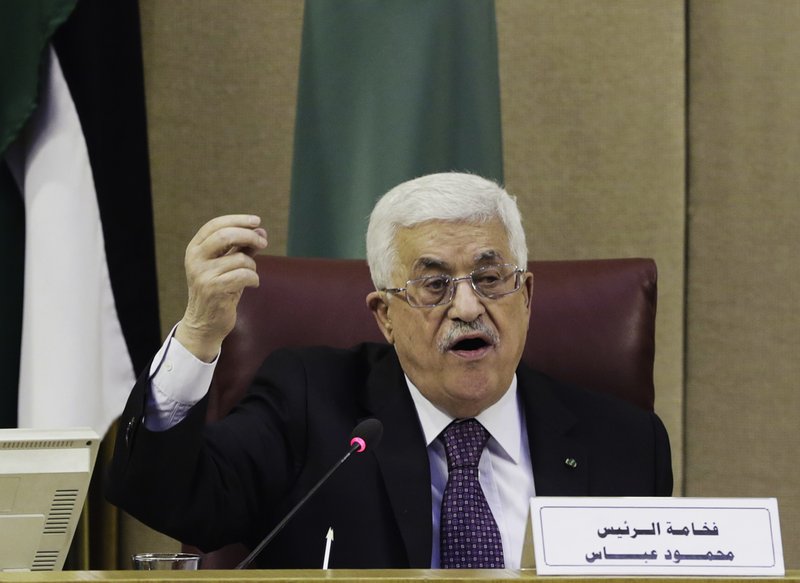THE HAGUE, Netherlands -- The prosecutor of the International Criminal Court began a preliminary probe Friday into possible war crimes in Palestinian territories.
Prosecutor Fatou Bensouda said in a statement she will conduct the preliminary examination with "full independence and impartiality."
Potential cases Bensouda could take on include allegations of war crimes by Israel during last summer's Gaza war where the Palestinians suffered heavy civilian casualties. Israel's settlement construction on occupied Palestinian lands also could be examined.
The cases also could include allegations of war crimes by Hamas, which controls Gaza, including the firing of thousands of rockets at Israeli residential areas from crowded neighborhoods.
The prosecutor's announcement comes after the Palestinian Authority acceded to The Hague-based court's founding treaty and recognized its jurisdiction dating back to July, the eve of the last Gaza war.
That move opened the door to an investigation by the court that could target possible crimes by both Israel, which is not a member of the court, and Palestinians.
A preliminary examination is not an investigation but weighs information about possible crimes and jurisdiction issues to establish whether a full investigation is merited.
Palestinian Foreign Minister Riad Malki welcomed the move and said the Palestinian Authority would cooperate.
"The Palestinian people called upon us to go to court and ask for an investigation, and therefore we consider the announcement today as a historic event," he said.
Israeli Prime Minister Benjamin Netanyahu slammed the decision and its timing.
"It is scandalous that just a few days after terrorists slaughtered Jews in France, the prosecutor of the International Criminal Court opens a probe against the state of Israel because we protected our citizens against Hamas, a terror organization that is in a covenant with the Palestinian Authority, and whose war criminals fired thousands of rockets at civilians in Israel," Netanyahu said. "Unfortunately it turns the International Criminal Court into part of the problem and not part of the solution."
Foreign Minister Avigdor Lieberman criticized the probe as stemming "entirely from political and anti-Israel considerations" and said he would recommend not cooperating.
Israel has accused Hamas, the Islamic militant group sworn to Israel's destruction that rules Gaza, of using Palestinian civilians as human shields by launching rockets and carrying out other attacks from within crowded neighborhoods, while purposely attacking civilians in Israel.
Palestinian President Mahmoud Abbas signed documents to join the International Criminal Court a day after the United Nations Security Council rejected a resolution Dec. 30 that would have set a three-year deadline for the establishment of a Palestinian state on lands occupied by Israel.
Joining the court is part of a broader Palestinian strategy to pressure Israel into withdrawing from the occupied territories and agreeing to Palestinian statehood. Abbas had been under heavy domestic pressure to take stronger action against Israel after the 50-day war between the Jewish state and militants in Gaza during the summer, tensions over holy sites in Jerusalem and the failure of the last round of U.S.-led peace talks.
Israel retaliated to the Palestinian move to join the court by freezing the transfer of more than $100 million per month in taxes it collects for the Palestinians.
Bensouda cast the decision to open a preliminary probe as procedural. It is unclear how long the preliminary examination might take. Bensouda said "there are no timelines" set in the court's founding treaty.
The prosecutor is currently conducting eight preliminary examinations in Honduras, Ukraine, Iraq, Afghanistan, Colombia, Georgia, Guinea and Nigeria. Some have been going on for years.
Judges at the court must approve any request by the prosecution office for a full investigation.
Established in 2002, the court has struggled to live up to high expectations that it would end impunity for high-ranking perpetrators of atrocities in conflicts across the globe.
It has completed only three trials, ending in two convictions and an acquittal, all of rebel leaders from the Democratic Republic of Congo.
The court has no police force to secure crime scenes, gather evidence or arrest suspects and has repeatedly had trouble gaining custody of indicted suspects.
Information for this article was contributed by Ian Deitch, Mohammed Daraghmeh and Edith M. Lederer of The Associated Press.
A Section on 01/17/2015


